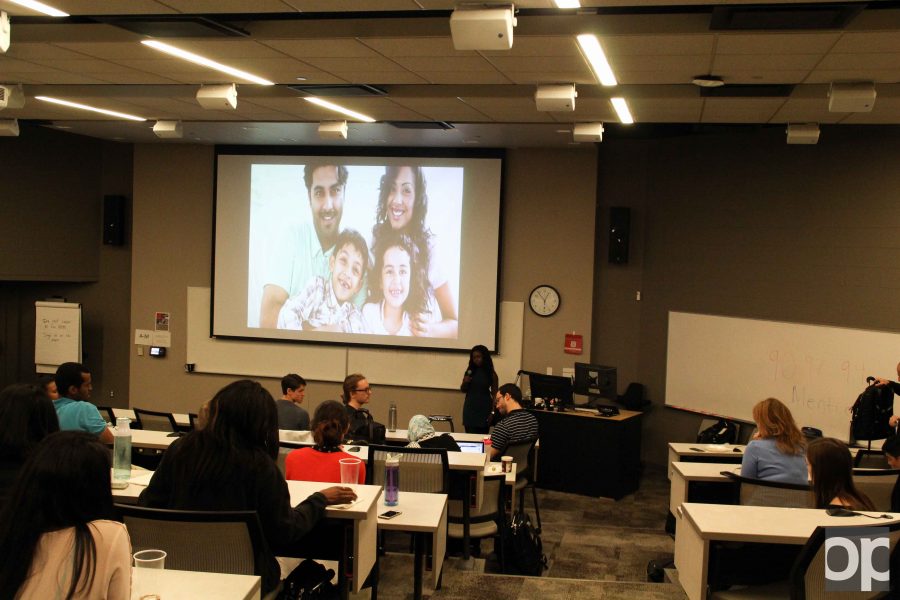Teaching diversity and inclusiveness in the medical field
Student National Medical Association hosted TED-like talks to discuss how to deal with indifferences with patients.
The friendly clamor of medical students could be heard inside room 203 of O’Dowd Hall on Wednesday, Nov. 2, as they waited for the Student National Medical Association’s (SNMA) TED-like Talks.
When the food arrived, there was a mad rush to form a line in front of the assortment of rice and chicken before the start of the presentations, which was co-sponsored by Oakland University William Beaumont School of Medicine Diversity and Inclusion.
The first speaker was med student Jeniffer Okungbowa-Ikponmwosa, who discussed understanding labels and health care from the African perspective.
Through an interactive case study, she attempted to exemplify how many people rarely consider that there is a difference between African and African-American.
She explained that Africa is not a country but a continent and not all Africans are black. She then discussed conflicts in health with immigrant populations.
“Take the time to actually teach patients what they need to know,” Okungbowa-Ikponmwosa said. “Don’t assume that if they’re an immigrant, then they’re stupid, because if they had the money to come here, then more than likely, they are educated and came from greener pastures.”
Austin Fan added his perspective to the event through an informal talk about his experiences as an LGBT individual in the world of health care.
“As physicians in training, we know how to not make assumptions, but how we carry ourselves in everyday life is also important,” Fan said.
Fan also touched on the importance of being an ally to the LGBT community.
“When you hear something racist, sexist, misogynistic, the role of allies is to step in and say that language is not okay,” he said.
Jamilah Alhashidi presented the next section titled “3 in 1: Muslim, Arab, Female.” She focused on Muslim and Arab traditions, outlining what health care professionals should be respectful of.
One of her main points was that the Arab culture tends to be incredibly family-oriented, and that this can come into play when a family member is hospitalized. She asked the audience of med students to be considerate of the fact that as many as dozens of relatives will want to visit and stay with some Arab patients.
Her bottom line revolved around the idea that not everyone within a faith or culture practices the same way, so one should always ask rather than assume.
“Although I identify as a Muslim, Arab and female, I do not represent every Muslim, Arab and female,” Alhashidi said.
Following with a similar theme, Fahad Al Sheckley spoke on Arabs, Iraqis and refugees.
From a broad perspective, he wanted to note that there is a difference between Arabs and Muslims, and Iraqis and Arabs.
Moving into health care more specifically, Al Sheckley brought up the backward stereotypes placed on refugees.
“There’s always this misconception of refugees coming recently, that they are uneducated, unvaccinated and unsanitary,” he said.
The event came to a close with a few minutes for the presenters to take questions from the audience, mainly regarding how to better serve people from other cultures.
“All too often, when we talk about anything dealing with race and people’s comfortability in talking about race, people tend to shy away,” said Dr. Caryn Reed-Hendon, director of Diversity and Inclusion for OUWB. “So the fact that we had so many individuals that were here in the room, besides being here for the food, asking questions, taking notes and being engaged, really says a lot.”
Diversity and Inclusion and SNMA hope to put on more Ted-like Talks in the future.







